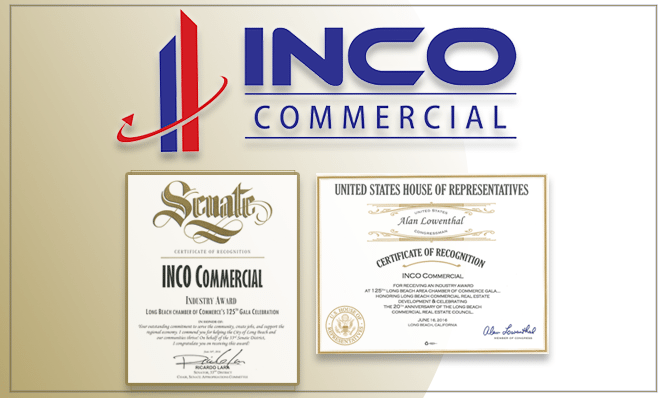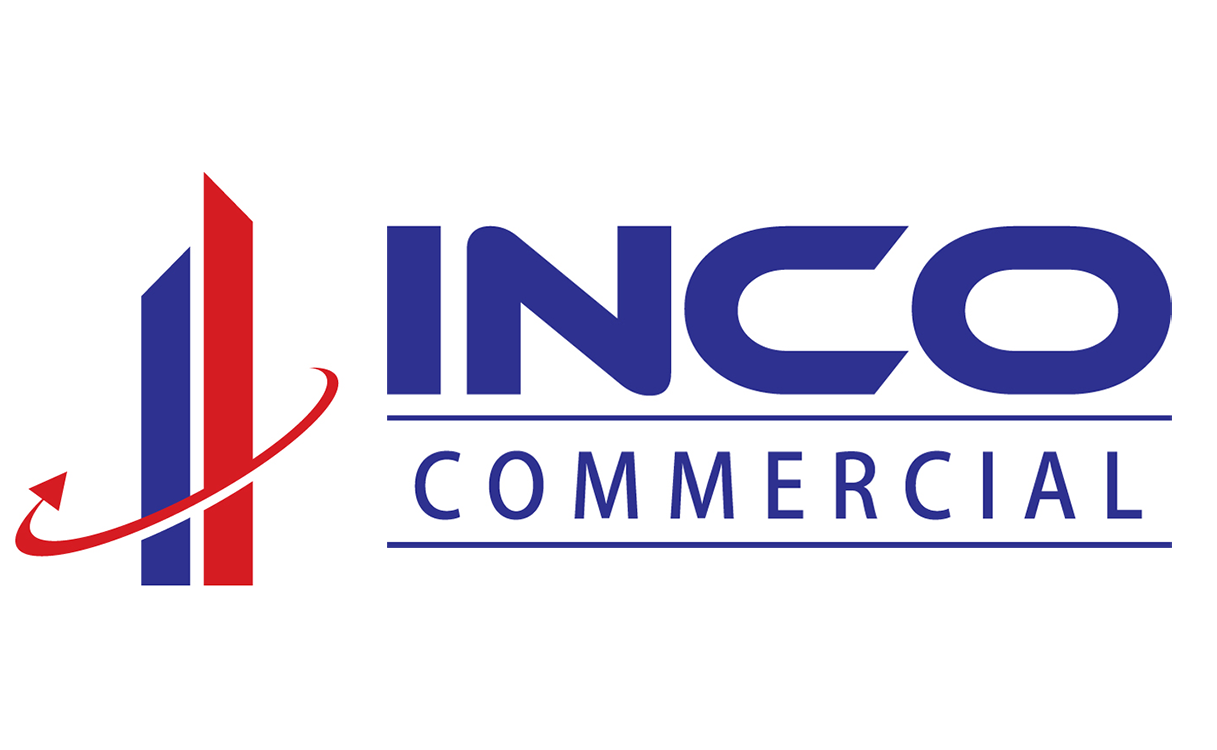When people consider investing in property, many limit their scope to single residential properties. However, considering just residential property investment are missing out on a potentially huge opportunity. The income and equity potential of investing in commercial real estate is much larger, despite the risks seeming greater than residential properties. Below, INCO Commercial reviews the different types of commercial properties and the benefits involved for investing in each type of property.
Commercial Real Estate Overview
Commercial real estate (CRE) is any land or properties intended to turn a profit either from capital gain or rental income. When brokers refer to ‘residential’ property, they’re usually referring to single-family dwellings, whereas as commercial properties in California include anything more than five dwellings (units).
Other commercial properties may include retail buildings, office spaces, warehouses, industrial buildings, apartment buildings, “mixed use” buildings, where the property might have a combination or mix of residential, commercial, and industrial. For example, there may be a retail store or restaurant on ground level, while offices or apartments are located on higher levels.
Benefits of Investing in Commercial Real Estate
Across the nation, Southern California is still considered the most strategic place to expand a commercial real estate portfolio. Even foreign investors have recognized the southland’s potential, as an influx of international companies and wealthy individuals from other countries have flooded the market in the past few years.
Though getting into commercial real estate as a novice may be intimidating at first, there are real benefits to investing in CRE properties whether you’re looking to expand your portfolio or are considering various investment options.
Higher Income Potential
Because of the property size and the number of tenants a commercial property can potentially hold, the annual return is much higher than other investments, such as stock dividends, which, on average, yield between a 2% to 3% annual return. The range is much higher for CRE, between 5% and 15%. Multi-family properties or apartment buildings tend to be toward the lower end, with suburban office spaces at the higher end.
Leveraging Increases Cash Flow – Higher Equity Potential
Much of the equity built in commercial real estate is increased through leveraging. Leveraging means using borrowed capital to make an investment, with the expectation that the profits will be greater than the payable interest. In this way, you can put down a small percentage of the purchase price on a particular property, finance the remainder, and go on to invest in more properties in the same way. Real estate leveraging allows you to enjoy a much higher return on investment than buying outright. Commercial real estate leases are also typically more favorable for banks and easier to approve because of the higher likelihood of a stable income flow, as long as they determine you’re not over-leveraging your assets.
More Tenants, Less Risk
In a multiple occupancy building, there is less risk of income loss when it comes to vacancies as other tenants are still contributing to covering your operating costs. This is opposed to vacancies on a single family residential, which equals 100% income loss. Also, since many commercial real estate leases are NNN, tenants are also responsible for the main expenses on the property, in addition to their base rents: Net taxes, Net building expenses, and Net Common Area Maintenance (CAM) fees.
Security Advantage
Unlike stocks, bonds, and other forms of investment, commercial real estate promises value both the land itself and the improvements on the property, such as structures, infrastructure, and landscaping. Additionally, the needs for CRE properties are fairly stable: housing (apartment complexes or mobile home parks), service industries (retail or office space), or storage and production (industrial warehouses). INCO Commercial can help you choose the best location and property within your desired area to maximize your advantage.
Excellent Appreciation Value
Whereas investments like stocks don’t allow for much more than buying and selling based on the market, commercial real estate owners are able to invest in improvements on their properties, as long as regulations are met and necessary local government approvals are secured. A commercial real estate property owner can modernize the property, raise rents, restyle the exterior or interior, or even apply for a zoning change. Inflation can also contribute to the value of existing properties; and while new properties will cost more to develop than older properties, existing locations still increase in value along with the newer local developments.
Need advice on commercial real estate investing? INCO Commercial provides high quality commercial real estate brokerage and advisory services to our clients, with expertise in multi-family housing, restaurant sales, mergers, and acquisitions. We are committed to improving the local community with the best agents and client-centered service we can provide.
Our affiliated companies, CORE Property Management and IMC Municipal Consulting are also ready to work hand-in-hand, depending on our clients’ needs. Core Property Management provides complete or partial assistance in effectively managing your properties to maximize your income potential. IMC Municipal Consulting provides advisory services for real estate and community development, and can help strategically navigate large-scale economic projects in compliance with local laws and environmental codes.
Explore our website, or visit our contact page to see which INCO Commercial office can best serve you.




